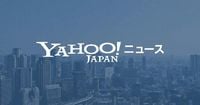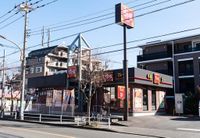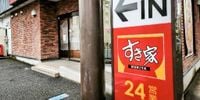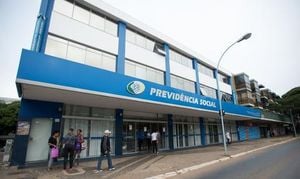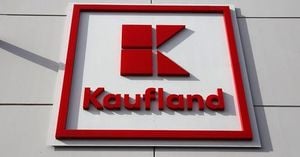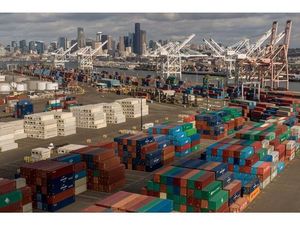In January 2025, a photo posted on social media showing a cockroach in Sukiya's miso soup ignited a significant public outcry. This incident was compounded by subsequent reports of cockroach parts found in a product taken home from the Akishima Station South store in Tokyo. The fallout from these revelations has raised serious concerns about food safety and the integrity of one of Japan's most well-known beef bowl chains.
Before these disturbances, Sukiya's parent company, Zensho Holdings, had reached a record high stock price since its listing. However, following the discovery of foreign matter in its food, the company's stock has been on a downward trajectory. With the company previously expecting record profits for four consecutive quarters, the impact of these incidents on its future performance remains uncertain.
The initial incident occurred at the Sukiya Tottori Minamiyoshikata Store, where a customer discovered a dead cockroach in their miso soup on January 21, 2025. This revelation was not made public until March 22, creating a two-month gap that has drawn criticism for the company's transparency. Following this, the Akishima Station South store also faced scrutiny after customers reported finding parts of cockroaches in their takeout orders.
In response to the growing public anxiety surrounding these incidents, Zensho announced a nationwide closure of all Sukiya stores, except for some located in shopping centers, from 9:00 AM on March 31 to 9:00 AM on April 4, 2025. During this period, the company plans to conduct thorough cleaning, pest control measures, and re-education of staff regarding hygiene protocols. The estimated loss from this four-day closure is approximately 2.4 billion yen, based on daily sales of around 600 million yen.
Despite the recent turmoil, Zensho's financial performance prior to these incidents was strong. In the third quarter of the fiscal year ending March 2025, the company reported sales of 84.67 billion yen, a 19.8% increase compared to the previous year, and an operating profit of 5.8 billion yen, marking a 55.2% increase. This growth suggests that the company had been performing well before the contamination issues arose.
However, the market's reaction has been swift and unforgiving. On March 22, the day after the first contamination report, Sukiya's stock fell by 5.1%. By the time the company announced its nationwide closure, the stock price had dropped to 8,051 yen, a 3.9% decrease from the previous day and an 18% decline from its record high of 9,749 yen set in December 2024.
Public sentiment has been mixed. While many customers express understanding regarding the need for a closure to ensure safety, there is also a palpable concern about the safety of other restaurants under Zensho Holdings, which operates numerous brands including Cocos, Jolly Pasta, Nakau, Hamazushi, Lotteria, and Big Boy. Some customers have taken to social media to voice their apprehensions about the integrity of these other establishments.
On March 27, Zensho provided further details on how the cockroach contamination occurred. The company stated that the likely entry point for the cockroach was a crack in the rubber packing of a large refrigerator that faced the outside of the store. They explained that the contamination likely occurred while the miso soup ingredients were temporarily stored in this refrigerator. This explanation has led to further scrutiny of the company's food safety protocols.
As the company works to restore consumer trust, it faces the challenge of ensuring that incidents like these do not occur again. The Tokyo Metropolitan Government Bureau of Public Health reported that in fiscal year 2022, there were 4,071 complaints regarding food safety, with insects being the most common type of foreign matter reported. Among these, cockroaches accounted for a significant number of cases, highlighting a broader issue within the food service industry.
In light of these events, the importance of stringent hygiene practices and rapid response to food safety issues cannot be overstated. The food service industry is governed by strict regulations under the Food Sanitation Act, which mandates that all food businesses implement HACCP (Hazard Analysis Critical Control Point) protocols to prevent contamination. These protocols require businesses to identify potential hazards and implement measures to minimize risks throughout the food production process.
As Sukiya temporarily closes its nearly 1,970 stores to address these safety concerns, it is clear that the road to recovery will involve not only cleaning and pest control but also a commitment to transparency and accountability. A message posted at the entrance of the stores expressed the company's commitment to providing a clean and safe environment for its customers, stating, "We sincerely apologize for the inconvenience and discomfort caused by the recent incidents. We take this matter seriously and will work diligently to ensure our stores are clean and safe for our customers. We appreciate your continued support as we navigate this challenging time."
As the company prepares to reopen its doors on April 5, it will need to demonstrate to its customers that it has taken the necessary steps to ensure food safety and regain their trust. The coming weeks will be crucial in determining whether Sukiya can recover from this crisis and what long-term impacts these incidents will have on its brand and financial performance.
